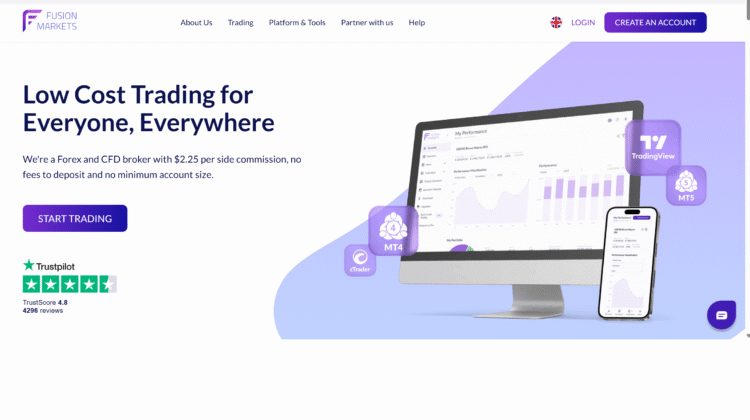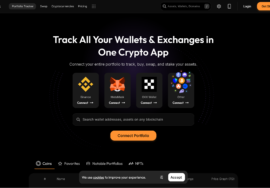
8 Alarming Red Flags Exposing the Dangers of FusionMarkets.com
8 Alarming Red Flags Exposing the Dangers of FusionMarkets.com

Introduction
In today’s hyper-digital markets, investors are bombarded with brokers and platforms that promise security, transparency, and opportunity. FusionMarkets.com is one such broker—it advertises low spreads, ASIC oversight, segregated accounts, and efficient trading tools. On paper, it looks professional and regulated. Yet beneath the polished surface, troubling user reports and industry reviews reveal a darker picture.
From withdrawal complaints, to clone sites impersonating FusionMarkets, to the ever-growing use of scam influencer promotions and trading bots that lure naïve investors, there are eight alarming red flags that investors need to know before sending funds to FusionMarkets.com.
1. Regulatory Oversight That Looks Solid—But With Loopholes
FusionMarkets claims regulation under ASIC (Australia) and VFSC (Vanuatu). ASIC is reputable, but Vanuatu is a known light-touch jurisdiction. Offshore regulation allows flexibility, but it also opens loopholes. Clone sites already impersonate FusionMarkets—regulators themselves warn that fraudsters exploit brand names to appear credible. This mismatch between advertised strength and exploitable weakness creates a gap where catfishing + crypto investment scams thrive.
2. User Complaints About Withdrawals
On Forex Peace Army and Reddit, traders have described scenarios where withdrawals were delayed, reduced, or reclassified under vague “cash adjustments.” In one case, profits were cut back retroactively under “swap adjustments.” That echoes the bait-and-switch tactics used by many high-risk brokers. To a retail investor, this feels indistinguishable from a reloading scam: profits appear on screen, but vanish once you try to cash out.
3. Scam Influencer Promotions Linked to Fusion’s Brand
Influencer marketing is one of the most common funnels scammers use. Even if Fusion itself does not officially sanction these, scam influencer promotions use the brand’s name, screenshots of the platform, or even forged endorsements to lure users into “special programs” or meme-coins. Victims think they’re joining Fusion’s “exclusive trading offer,” but are funneled to scam smart contracts or shady wallets.
4. High Risk of Clone & Impersonation
BrokerChooser itself warns that clone websites pretending to be FusionMarkets exist. These clones are often only one typo away—classic typosquatting. Victims who think they are depositing on fusionmarkets.com may actually be entering credentials on a phishing page controlled by scammers. Once funds are deposited, they vanish into crypto drainer contracts or shell wallets.
5. Meme Coin Promotions Tied to Influencers
Reports have emerged of influencers attaching Fusion’s name to meme coins or “exclusive presales.” These are pitched as partnerships, but upon inspection, the coins are rug-pull schemes—influencer meme coins with no utility, liquidity, or regulatory standing. The goal: to ride Fusion’s reputation while siphoning investor funds into a high-yield presale scam.
6. Scam Trading Bots Disguised as Broker Tools
A recurring theme in complaints is the promotion of “AI-powered bots” or “expert advisors” tied to Fusion accounts. Traders are told these bots can generate passive income. In reality, many of these are scam trading bots: they execute poor trades, create artificial profit dashboards, and then lock withdrawals. Victims are tricked twice—once when they fund the bot, and again when they try to withdraw “profits” that don’t exist.
7. Smart Contract Gimmicks Masquerading as Bonuses
Cloned Fusion promos often include “staking pools” or “bonus smart contracts.” Investors connect their wallets to claim, only to sign approvals that drain their funds. This is the definition of a scam smart contract—hidden functions that authorize outgoing transfers. Because Fusion has real credibility, victims lower their guard, thinking a regulated broker wouldn’t risk such fraud. But impostors weaponize that trust.
8. Get-Rich-Quick Narratives
Finally, Fusion’s affiliates and impersonators often rely on classic get-rich-quick messaging: ultra-low spreads, massive leverage, no commissions, or bots that promise guaranteed returns. Legitimate brokers never promise guaranteed income. This type of marketing, whether official or not, is a red flag. It is the psychological hook that underpins catfishing + crypto investment fraud—where someone pretends to offer love or mentorship but eventually funnels you into Fusion-branded deposits.
✅ Extended Conclusion : Why You Should Be Cautious with FusionMarkets.com
FusionMarkets has two faces. On one side, it presents as a legitimate regulated broker with ASIC oversight, low costs, and transparent trading. On the other, it is increasingly entangled in the tactics and strategies that scammers use to drain funds: influencer fraud, clone websites, meme-coin presales, scam bots, and smart contract traps.
Regulation is not a shield. Yes, Fusion has ASIC authorization, but the presence of offshore subsidiaries (Vanuatu, Seychelles) weakens protections. Cloned sites impersonating Fusion blur the line between real and fake. Regulators like ASIC will not compensate victims of fraud tied to offshore shells or impersonations. This means that when you are scammed by a Fusion “look-alike,” there may be no recourse.
The complaints from real users are particularly troubling. They suggest that even when trading through official Fusion channels, withdrawals can be obstructed by adjustments, reviews, or terms invoked at the broker’s discretion. While this doesn’t prove fraud, it shows that profits may be illusory until withdrawn. This mirrors the way scam bots and meme coins operate: they show numbers on a screen that vanish when you try to convert them to cash.
The keywords provided align naturally:
- Catfishing + crypto investment → Scammers impersonate Fusion reps, build personal trust, then funnel victims to deposits.
- Scam influencer promotions → YouTube, TikTok, Telegram promotions using Fusion’s name or branding to legitimize shady offers.
- Influencer meme coin → Rug-pull tokens pitched as Fusion partnerships.
- Scam smart contract → Staking or airdrop contracts promoted under Fusion’s name that drain wallets.
- Scam trading bot → EA/bot software promising guaranteed wins but generating losses or trapping withdrawals.
What to do if approached by Fusion-branded offers:
- Verify the domain. Only trust fusionmarkets.com. Clone domains with dashes, extra letters, or .net endings are common.
- Check regulation. Use ASIC’s register to confirm the license. Don’t trust screenshots.
- Test withdrawals early. Deposit the minimum, trade, then withdraw. If this fails, stop immediately.
- Beware influencer hype. No legitimate broker needs to offer meme coins or “AI bots” via Telegram.
- Protect your wallet. Never connect to a smart contract claiming to be a Fusion promo. If asked, it’s a scam.
Final Word: FusionMarkets.com itself may operate legitimately under ASIC. But the ecosystem of scams orbiting around its name makes it a hazardous brand for unwary investors. Whether through catfishing scams, influencer meme coins, or scam bots, the tactics are all designed to funnel your money away. Until the broker decisively distances itself from these practices and clone domains, treat FusionMarkets as high risk.









